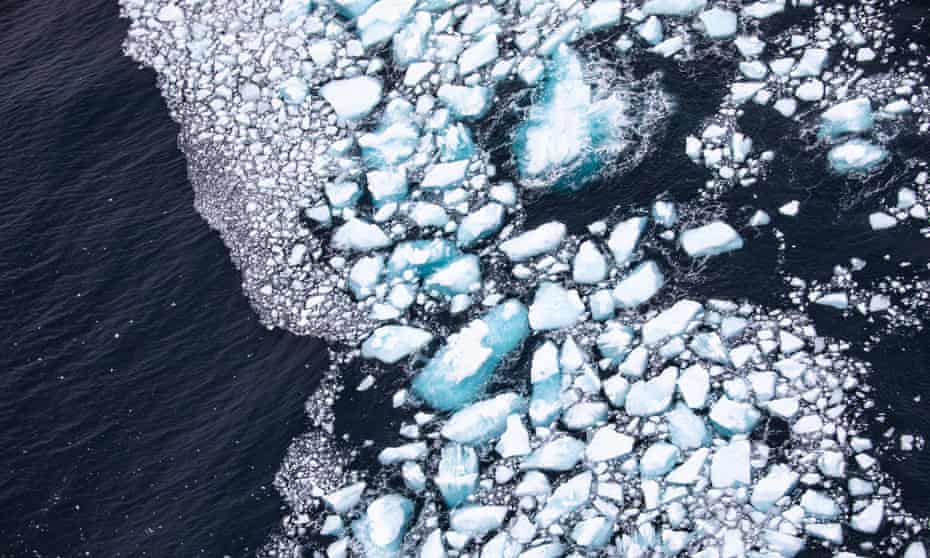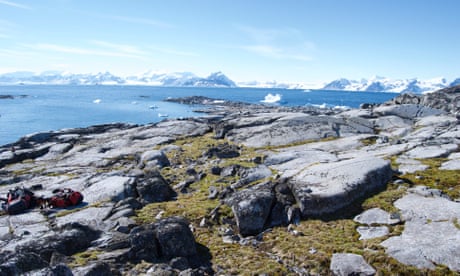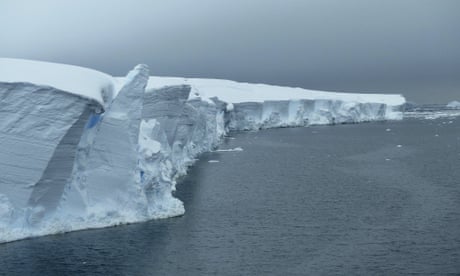Extract from The Guardian
Scientists say record drop can’t yet be linked to global heating but urgent research needed to work out cause.

Climate scientists say the record drop can’t yet be linked to global heating but urgent research is needed to work out why the region’s sea ice had broken a record last set only five years ago.
Data from the US National Snow and Ice Data Center showed the Southern Ocean sea ice coverage had fallen below 2m sq km for the first time since satellite measurement began more than 40 years ago.
Dr Walt Meier, a senior research scientist with the NSIDC, said it coincided with strong winds over part of the Ross Sea that had pulled ice to the north, where it melted in warmer waters or was broken up by waves.
This pushed the sea ice extent – the area of the ocean covered by at least 15% floating ice – to below the previous record low set in 2017. But scientists expressed caution about attributing the retreat to the increase in global temperatures linked to greenhouse gas emissions.

Since satellites started measuring sea ice from 1979, the two poles have been behaving differently. Sea ice has been disappearing rapidly in the Arctic but satellites have been showing a slight rise in the Antarctic, contradicting expectations from some climate models.
The southern cover reached a record high in 2014 before crashing to record lows twice in the past eight years.
Dr Will Hobbs, who studies Antarctic sea ice with the Australian Antarctic Program Partnership, said the latest record was significant. There had been an expectation that after the record low of 2017 the ice would recover, he said.
“But now we have these two events in five years that are off the records,” he said. “You can’t say this is climate change, but we do now have to consider whether or not the system is starting to change.”
Researchers first got a hint something unusual was happening last August, when the ice stopped growing and started showing signs of retreat about a month earlier than usual.
Antarctic sea ice is challenging to study because of the huge changes that occur. About 15m sq km of sea ice – an area double the size of Australia – grows and substantially melts each year. The ice can be influenced by the strength and direction of winds as well as heat in the atmosphere and ocean.

Hobbs, who is based at the University of Tasmania, said the record drop was a “watch and act” for scientists and should prompt a clammer for more research.
The sea ice was fundamental to ecosystems and may play a role in protecting the Antarctic ice sheet from the effects of ocean heat, he said. When the ice sheet melts it adds to global sea levels.
Prof Julie Arblaster, a climate scientist and Antarctic researcher at Monash University, said a lot of work was being done to pin down what was happening to the continent’s floating ice and how it might change in the future as the planet warms.
She said while most climate models suggested sea ice would drop around Antarctica in the future, there was still “low confidence” in the results.
“But it’s a critical issue because the ice has a lot of impacts on the global climate and on the marine life down there,” she said.
No comments:
Post a Comment